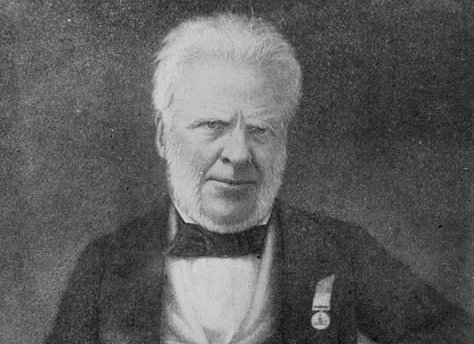
THE Scottish diaspora is one of the biggest in the world. An estimated 30-40 million people around the world can trace their ancestry back to Scotland. In America it is routine to bump into someone who goes “Hey man, my great-granddaddy was from Scotland too!” upon hearing your accent. Indeed, it is estimated that some 34 US Presidents have been of Scottish or Ulster-Scots descent including George Washington, Theodore Roosevelt, Ronald Reagan and Donald Trump.
Outside of the United States and the other nations of the United Kingdom, much of this diaspora resides within the “White Commonwealth”. That is, Canada, Australia and New Zealand. It is the third of these we draw our attention to today.
Some 278 years ago on July 31 1844, the New Zealand Company (NZC) purchased 400,000 acres of land in modern-day Otago Province from the Ngai Tahi for a sum of roughly £210,000 in today’s money. An area the size of South Lanarkshire was bought for half the price of a nice house in East Kilbride.
The NZC had been colonising New Zealand since the 1820s and, in 1840, the Treaty of Waitangi was signed between Maori Chiefs and representatives of the British Crown, declaring New Zealand to be under the sovereignty of the Crown. The treaty promised to protect the rights of the Maori and treat them as British subjects.
The purchased block in Otago was planned for Scottish settlement and was backed by the Otago Association, an offshoot of the Free Church of Scotland. Thousands of Scottish settlers descended upon Otago led by William Cargill, a Scottish army officer and Thomas Burns, an Ayrshire minister and nephew of Rabbie Burns.
Census records from the 1850s indicate that of 12,000 settlers in Otago, an estimated 75% of them were Scottish. The settlers were attracted by the prospect of a better life in Otago, with domestic factors such the Highland Clearances, overpopulation of urban centres and the Highland potato famine amplifying the idea that emigration offered a better life for poorer Scots.
The vast influx of settlers severely impacted the Ngai Tahu. They complained to the Crown in 1849, citing that elements of the Treaty of Waitangi had not been honoured, specifically the areas of reserving areas of land for them to live on, access to food gathering resources and the building of educational and health facilities.
The Crown ignored their pleas however and the Ngai Tahu were eventually largely driven out, with only 2000 residing in Otago today.
A gold rush in the 1860s saw an influx of colonists from England and Ireland, diluting the Scottish character of Otago but as in Nova Scotia and Malawi, Scotland’s colonial legacy is evident across Otago. Burns night events are held annually alongside ceilidhs and other celebrations of Scottish culture. The University of Otago boasts the Centre for Irish and Scottish studies; a reflection of the deep Scottish connection the area holds.
In geography too, we see the legacy of Scottish colonialism. Dunedin, the principal city of Otago province, derives its name from Dun Eideann, the Scottish Gaelic name for Edinburgh. Clyde, Roxburgh, Strath-Taieri. These are just a few of the places in Otago that owe their names to Scots settlers.
This series has foregrounded how at ease Scotland was with the project of Empire and how Empire was deeply linked with the concept of Scottishness, illustrating several instances of a distinct brand of Scottish imperialism. Thus far it has been relatively uncomplicated. Scots set out to colonise and exploit the world to their benefit. But Otago invites us to remember an uncomfortable truth. That imperialism was not the sole preserve of the ruling class and even those Scots oppressed and exploited in their own country reaped the riches of colonialism.
Whilst working-class Scots got a second chance at a better life in Otago, we must remember the price at which that chance was purchased. This speaks to a wider disconnect in understanding just how the Empire benefitted working class Scots. The settlement of Otago illustrates how Empire benefitted Scottish settlers who chose a life in the colonial empire but Scots at home also reaped the rewards of colonisation, a fact that is both uncomfortable and less salient within public conversations surrounding the Empire.
Running through much of Scottish political culture is a yearning for the days in which heavy industry dominated the West-Central Belt economy and a time when Scotland could claim to be the workshop of the world. For the days of Red Clydeside, Yarrows, John Brown’s, Ravenscraig etc. As a society we can sometimes gaze nostalgically at our industrial heritage, wishing for a return to “real work” where people had a trade, a decent earning and a better life than their forefathers.
Misplaced nostalgia for Scotland’s industrial heritage aside, what is not yet widely understood is how linked all this was with the imperial economy.
Britain’s vast imperial navy and commercial fleet kept the shipyards pumping whilst Scottish coal mines kept the navy sailing. Scottish steel was exported around the world, building railways designed used to ferry troops across occupied land and Scottish-built trains rumbled on their tracks.
Vast tracts of land in Canada, Australia, New Zealand, South Africa, Rhodesia and Kenya were made available through force or coercion for thousands of Scottish colonists to live upon. Hundreds of companies based in Scotland held assets in the empire, exploiting native labour forces to harvest raw materials for products sold to Scots. Tea, coffee, tobacco, oil, cotton, cattle.
Empire was central to Scottishness pre-1960s but it wasn’t restricted to the ruling class as Otago shows. As we hopefully focus more on Scotland’s imperial past, it would be a mistake to view Scottish imperialism as an elite project. Directly or indirectly, our conquests benefitted all classes in Scotland.







